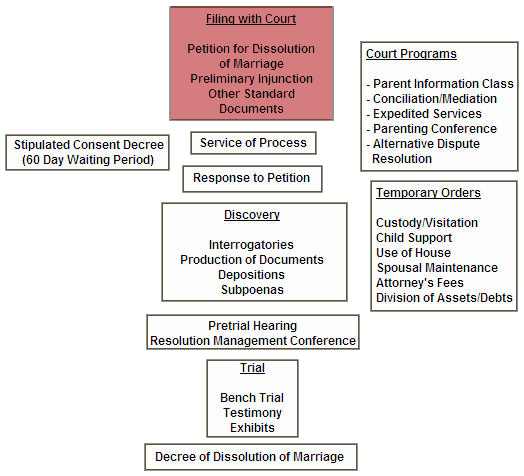 “`html
“`html
Contested vs. Uncontested Divorce in Arizona: Navigating the Complexities with Lucas Law
Divorce is often a challenging and emotionally taxing ordeal. As couples navigate this difficult transition, understanding the nuances between contested and uncontested divorces is crucial, particularly in Arizona where specific laws apply. At Lucas Law, we pride ourselves on providing expert legal guidance to help clients reach the most amicable and equitable outcomes possible.
What Does “Uncontested Divorce” Mean?
Understanding Uncontested Divorce in Arizona
An uncontested divorce is a streamlined process where both spouses reach an agreement on all essential issues, such as property division, child custody, child support, and spousal maintenance. In Arizona, this process is generally faster and less costly than a contested divorce, owing to the absence of lengthy court proceedings.
Benefits of Uncontested Divorce
The advantages of pursuing an uncontested divorce are noteworthy. First, there’s a significant reduction in legal fees since the process avoids extensive litigation. Secondly, it alleviates emotional strain by fostering cooperation between parties, which is particularly beneficial when children are involved. Lastly, the privacy afforded by fewer court appearances helps maintain discretion over personal matters.
Types of Divorce Recognized in Arizona
No-Fault Divorce
Arizona is a no-fault divorce state, whereby either spouse can file for divorce without needing to prove any misconduct by the other party. The primary requirement is to state that the marriage is irretrievably broken. This simplifies the path to divorce, emphasizing the importance of mutual agreement over proving fault.
Covenant Marriage Divorce
Couples in Arizona can opt for a covenant marriage, which imposes more stringent divorce requirements and necessitates pre-marital counseling. To dissolve a covenant marriage, certain grounds such as adultery or abuse must be met, as specified under A.R.S. § 25-903. This type of marriage underscores the legal complexities involved when circumstances demand higher accountability.
Summary Dissolution
Summary dissolution is designed for couples who meet specific criteria, such as having no children, possessing limited assets, and agreeing on all divorce terms. This simplified process offers a quicker and less complicated means to dissolve a marriage, appealing to those wanting to expedite the separation.
Key Differences Between Contested and Uncontested Divorce
Contested Divorce: When Disagreements Arise
A contested divorce occurs when spouses cannot agree on one or more critical issues, resulting in court intervention. Such cases often involve lengthy proceedings, with hearings, evidence presentation, and possibly a trial. These divorces generally incur higher costs due to increased legal fees and court expenses.
Uncontested Divorce: Streamlined Resolutions
In contrast, an uncontested divorce concludes more swiftly, given the lack of court hearings or trials. This method is more cost-effective and tends to preserve better post-divorce relationships due to its cooperative nature. Couples capable of reaching agreements on all issues often opt for this route to minimize conflict.
Steps Involved in Divorce Proceedings
Uncontested Divorce Process
- Filing a Petition: One spouse initiates the process by submitting a petition for dissolution of marriage.
- Negotiation and Agreement: Both parties negotiate and agree on all divorce-related matters.
- Submission to Court: The marital settlement agreement is submitted for court approval.
- Finalization: Upon approval, a divorce decree is issued, finalizing the divorce.
Contested Divorce Process
- Filing a Petition: Similar to uncontested divorces, one spouse files a petition.
- Response: The responding spouse indicates disagreements, prompting further proceedings.
- Discovery: Both parties exchange pertinent information and documents.
- Negotiation and Mediation: Attempts to resolve disputes through mediation or negotiation occur.
- Trial: If unresolved, a trial is conducted wherein a judge delivers the final verdict.
- Finalization: A divorce decree is issued based on the court’s rulings.
Weighing the Benefits: Uncontested vs Contested Divorce
Advantages of Uncontested Divorce
Opting for an uncontested divorce offers several perks, including quicker resolution times and reduced costs. Additionally, this approach promotes more amicable interactions, essential for maintaining cordial relationships post-divorce, especially where children are concerned.
Reasons for Choosing a Contested Divorce
When an impasse is reached or in situations involving power imbalances or abuse, a contested divorce might be necessary. This allows a judge to impartially determine a fair settlement while ensuring legal rights are protected.
Why Choose Lucas Law?
Expert Legal Services
Lucas Law boasts extensive expertise in Arizona family law. Our legal paraprofessionals are dedicated to providing sound advice and effective representation, ensuring that clients navigate the divorce process as smoothly as possible.
Compassionate Support
We recognize the emotional impact divorce can have on families. Our team is committed to offering empathetic support, empowering clients to make informed decisions during such challenging times.
Cost-Effective Solutions
While divorce inherently involves legal expenses, Lucas Law aims to provide affordable alternatives without sacrificing quality. Our cost-effective strategies ensure clients receive the best outcomes within their financial means.
Lucas Law is more than just a legal consultant; we are your partner through the intricate landscape of divorce. Contact us today to schedule a consultation and start your journey towards a brighter, more stable future.
“`
Originally Post From https://lucaslawaz.com/contested-vs-uncontested-divorce/
Read more about this topic at
How the Divorce Process Works
The Divorce Process in 7 Steps


